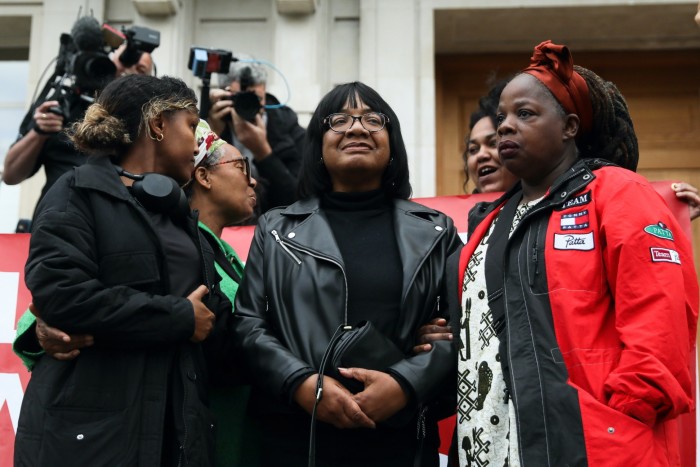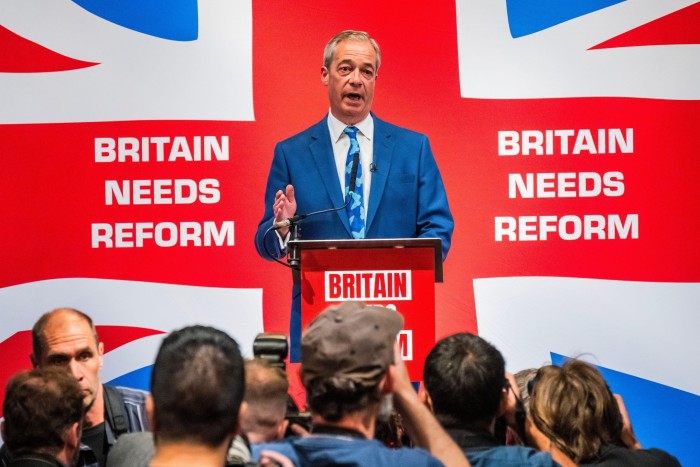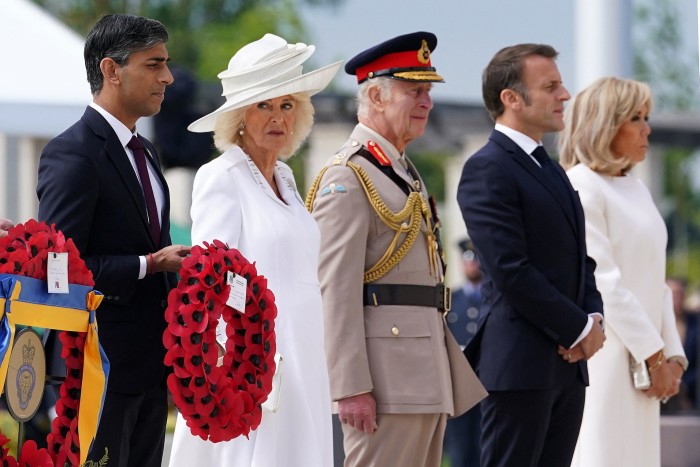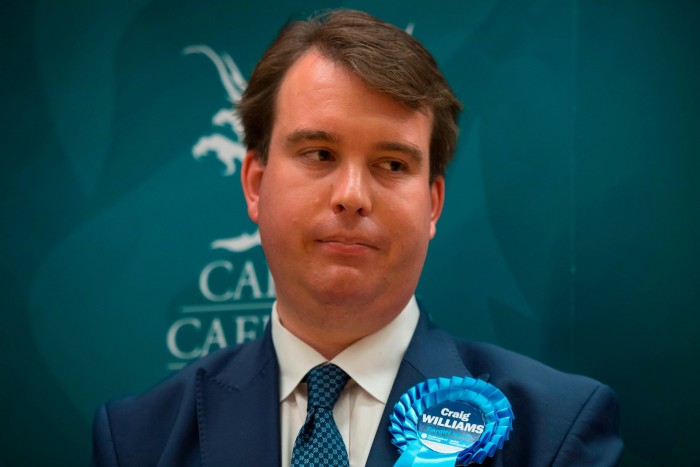
Unlock the Editor’s Digest for free
Roula Khalaf, Editor of the FT, selects her favourite stories in this weekly newsletter.
Six weeks have passed since Rishi Sunak walked out into a Downing Street rainstorm to announce a general election on July 4, presaging a campaign of drama, mistakes and comic incident.
One thing has barely changed, however. Sunak’s Conservatives go into polling day trailing Labour by about 20 points, almost exactly the same gap as when the campaign started on May 22.
Sir Craig Oliver, who was Downing Street head of communications for David Cameron, said the party’s dismal recent record meant the contest was “over before it started”.
Even given this, the campaign itself was riddled with problems from the start: Isaac Levido, campaign chief, was among those urging Sunak to wait until the autumn. “They seemed to wrongfoot themselves,” said one Labour strategist.
“It has been the worst campaign in my lifetime,” said one veteran Tory seeking re-election. But could Sunak’s polling have fared better if things had gone differently?
These are some of the critical campaign events:

SIR ED DAVEY FALLS OFF A PADDLE-BOARD — May 28
The Liberal Democrat leader perfected a new form of campaigning: making a fool of yourself. On May 28 on Windermere he provided one of the defining moments of the campaign.
Amid the fells of the Lake District, a wet-suited Davey gave a masterclass on how not to stand on a paddle-board. Until the campaign started, many voters had no idea who Davey was: at least now he was being noticed.
The danger for Davey was being squeezed out of media coverage by the bigger parties but the stunts helped secure him a hearing on policies such as tackling water pollution or helping Britain’s carers.
His party political broadcast, in which he talked about caring for his severely disabled son, was widely seen and helped the Lib Dems nudge up in the polls. Davey’s party is on course for one of its best results in years.

DIANE ABBOTT ALLOWED TO STAND AFTER ALL — May 31
Sir Keir Starmer, Labour leader, had his worst week of the campaign when he dithered for days about whether leftwinger Diane Abbott should be allowed to stand for the party at the election.
Abbott was suspended from the party in 2023 after suggesting Jewish, Irish and Traveller people experienced prejudice but not racism. Starmer clearly hoped to see the back of her at the election.
But after criticism from senior Labour figures, Starmer relented and said she could defend her Hackney North seat after all. “It was Starmer’s most obvious mistake,” said Anthony Wells, head of political polling at YouGov. “But it was right at the start of the campaign.”
Thereafter Starmer played it safe, allowing the Conservatives to fall into traps of their own making, and appearing to adopt Napoleon’s dictum: “Never interrupt your enemy when he’s making a mistake.”

NIGEL FARAGE RETURNS — June 3
Potentially the most significant event of the whole campaign and Sunak’s worst nightmare: Nigel Farage decides to run for parliament and takes over as leader of Reform UK, the party he owns.
Reform leapt from 11 per cent in the first week of the campaign to roughly 16 per cent now, as Farage grabbed the limelight and injected some energy into an often lacklustre campaign.

Reform could help deny the Conservatives dozens of seats by splitting the rightwing vote, according to the FT’s analysis of polling data. Farage is expected to win in Clacton, while the party could pick up other seats too.
Farage has been hit by criticism over racist comments by a Reform activist and over his claim that Vladimir Putin was “provoked” by the west into invading Ukraine, as well as defections by some candidates — but the party’s polling position has remained stable.

RISHI SUNAK’S D-DAY DISASTER — June 6
The prime minister’s decision to leave D-Day commemorations early in order to carry out a pre-recorded interview with ITV will go down as one of the worst campaign blunders in recent years.
Sunak concluded he did not need to attend an event on Omaha Beach attended by world leaders including US President Joe Biden and Emmanuel Macron, president of France. “It was completely wrong,” said cabinet colleague Penny Mordaunt.
The Conservative campaign was already viewed as accident-prone, a perception that took hold from the moment a sodden Sunak announced the election date on May 22.
Given that Sunak was trying to stop older voters defecting to Farage’s Reform UK, rushing home from a D-Day event simply confirmed in many people’s minds that the Tory campaign was doomed.

THE TORY BETTING SCANDAL — June 12
Craig Williams, Sunak’s close parliamentary aide, admitted he was being investigated by the Gambling Commission over his “flutter” on the election date. Other Tory officials and candidates were soon embroiled in the widening probe.
Sunak said he was “incredibly angry” over the affair, and the prime minister’s allies said he felt betrayed that people so close to him appeared to have tried to profit from their privileged position.
Wells said the row, which dominated the airwaves for days, represented a “huge opportunity cost”, given that it stopped the Tories talking about other campaign themes.
Oliver, who is now a communications consultant, said “gamblegate” was toxic because it “reminded people during the campaign” of the “Partygate” scandal of coronavirus lockdown revels, and reinforced their suspicion that the Tories were only in it for themselves.